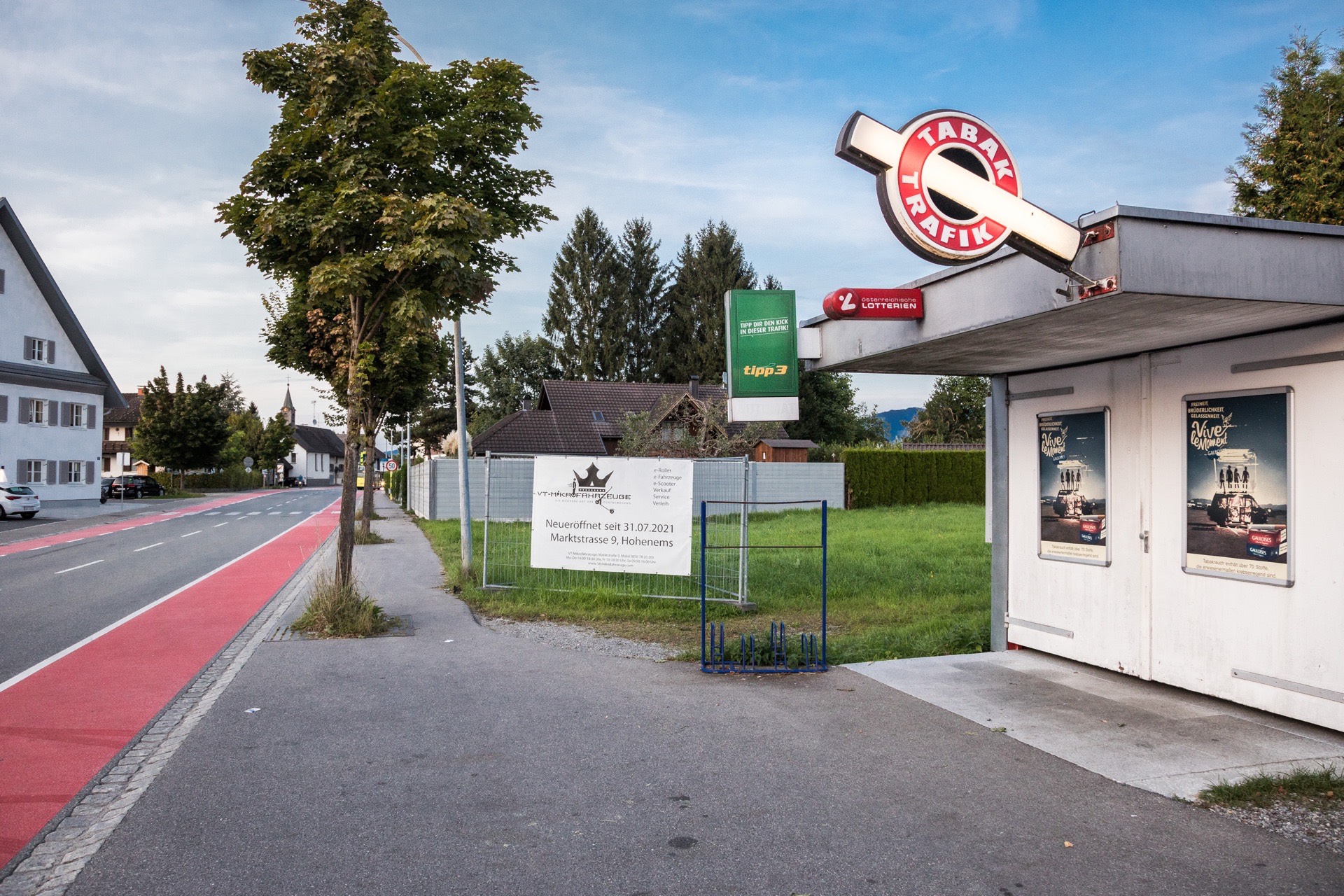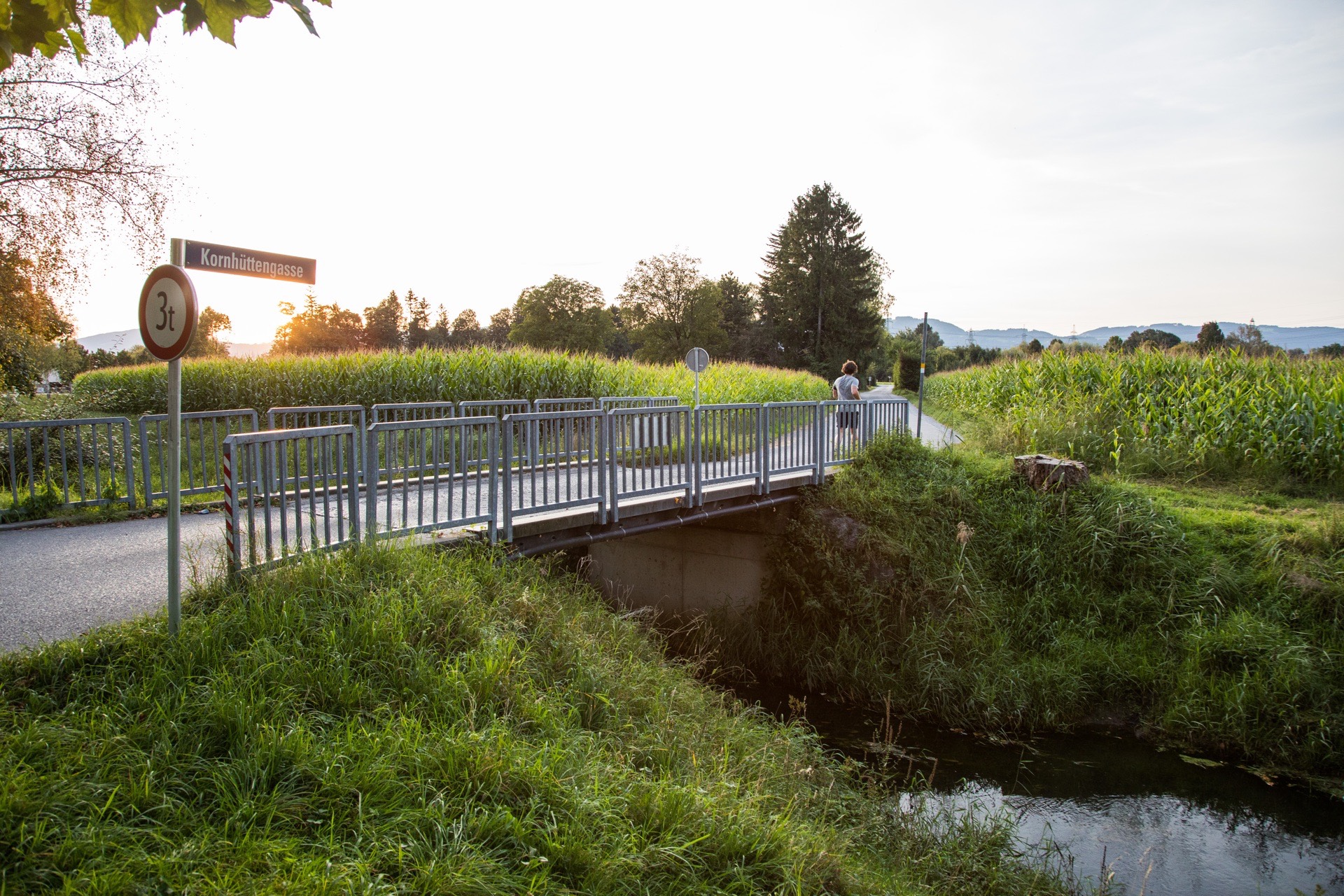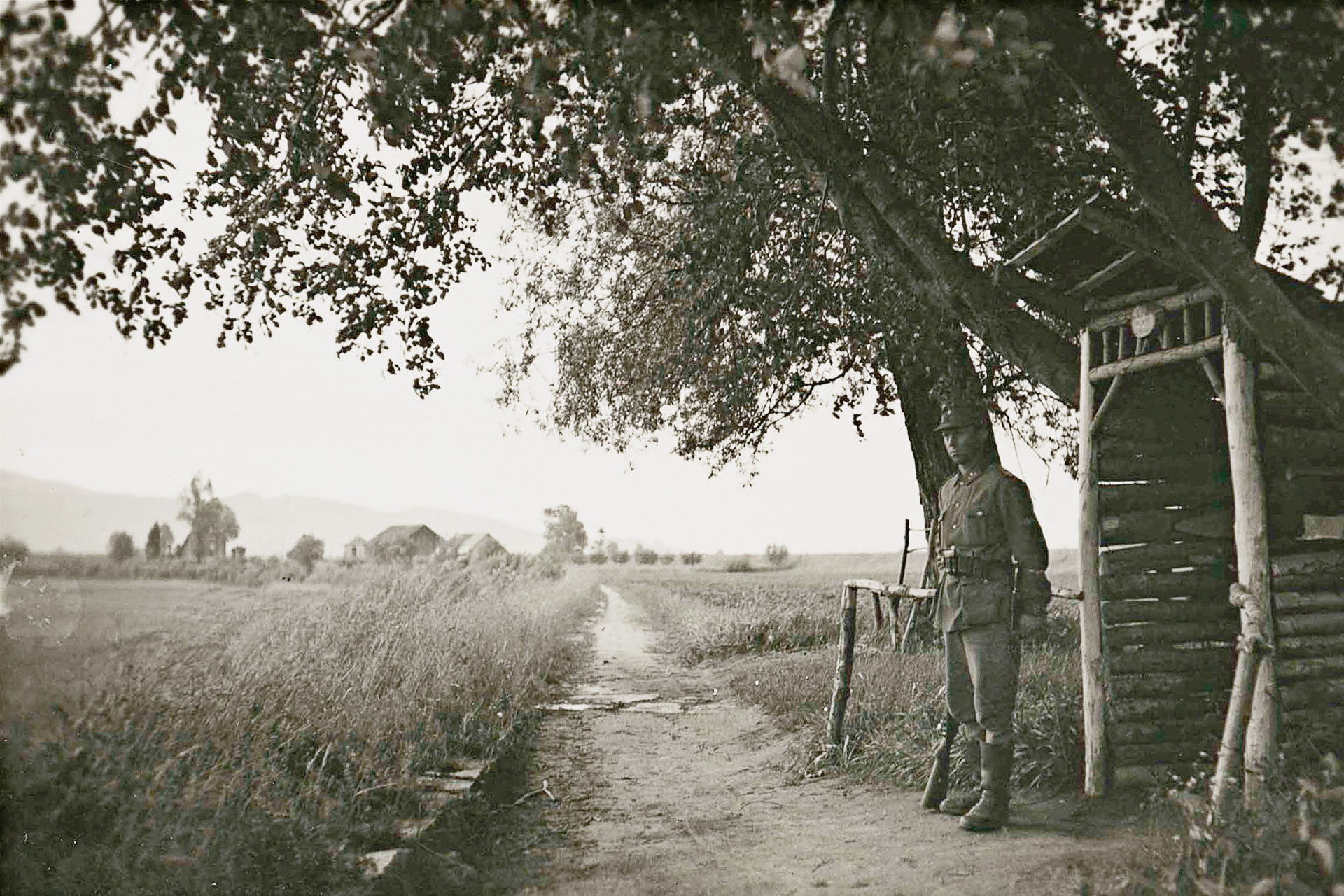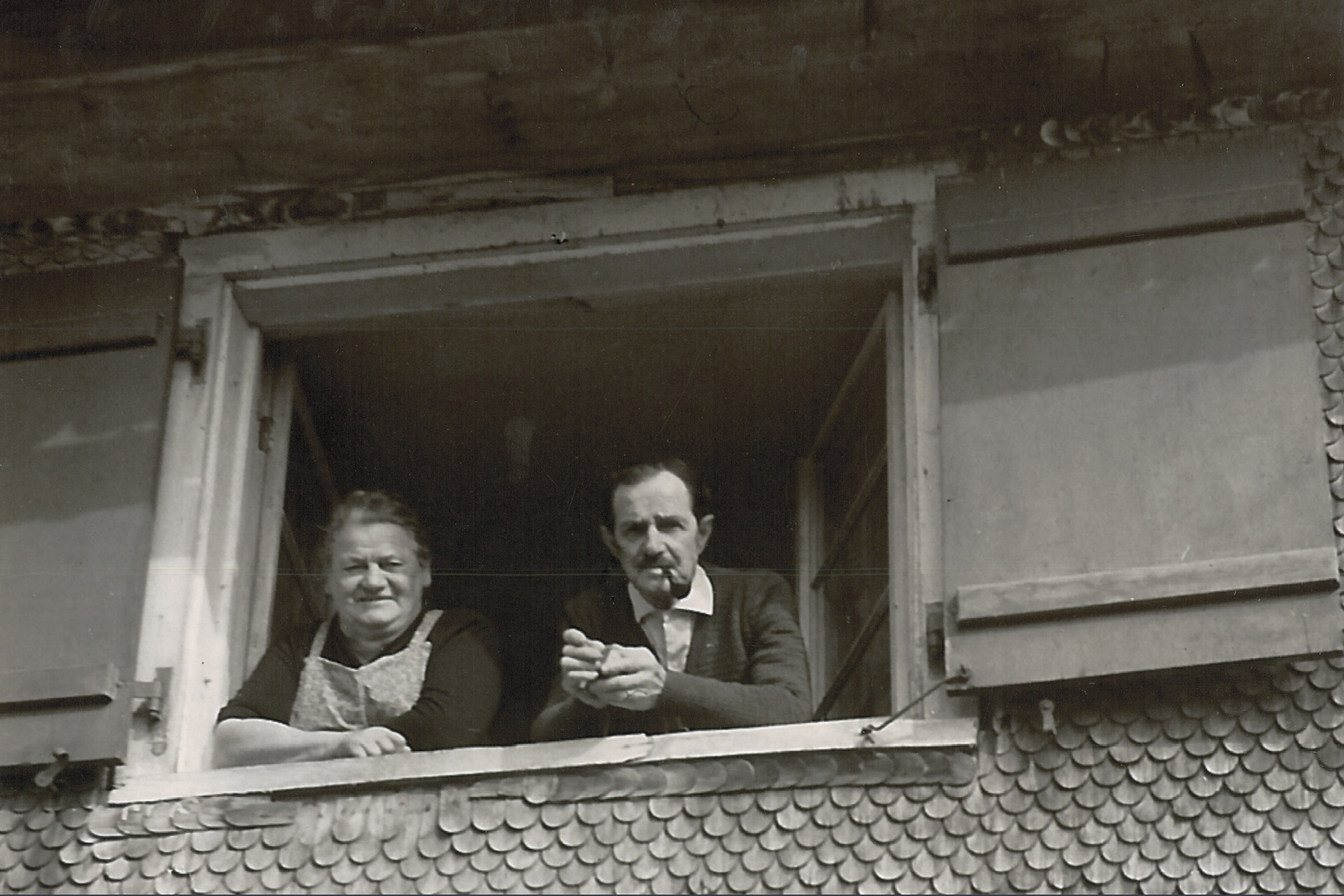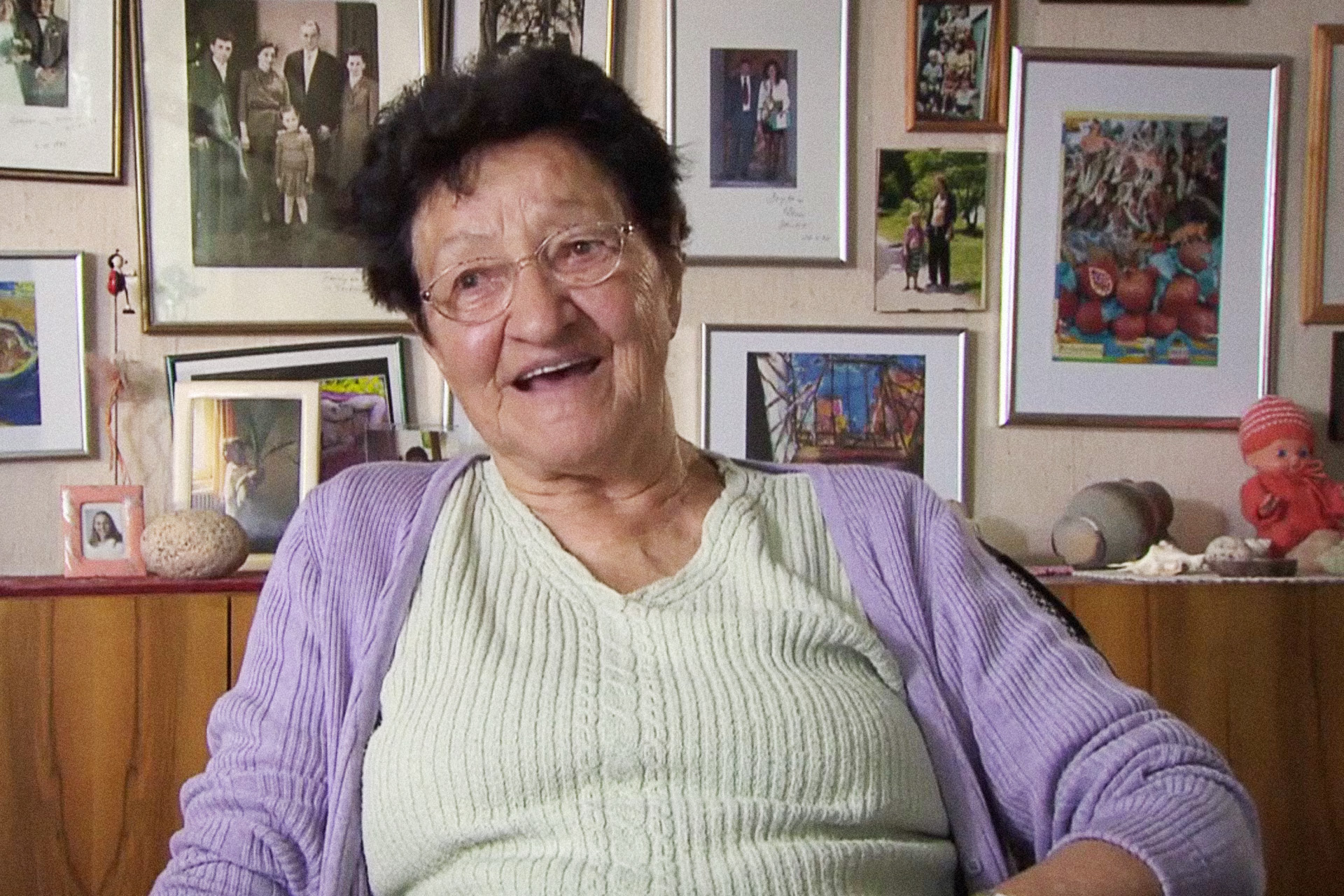Michael Frei> 1938 - 1942
29 Michael Frei
”No one was allowed to know what my father was doing”. Hildegard Schinnerl talks about her father, the escape helper Michael Frei
Hohenems, 2012
In an interview, Hildegard Schinnerl shares her memories—for the film “Grenzfälle” {border cases} by Robert Menasse and Kurt Langbein. At the beginning of war, her family, that is, her Swiss father and Vorarlberg mother, resided in a farmhouse near the border in Hohenems. Her father, already familiar with the ubiquitous smuggling occurring at the border, now turned into an escape helper.
“Even I, at age six, was already … sent to Lustenau to see who would arrive now. … but one never knew when they would come, … the longer it went on—from 1938 until 42—they were often on their way for a month, two months since they were no longer able to use the train. They’d arrive at night, frequently already sick. Then one had to hide or care for them. They were often so nervous, so sick with fear. Naturally, they—they lived with our family, but hidden time and again. In my parents’ bedroom—and then we also had a chamber. And then this small annex, they had to crawl over there. ... One would always through the wall ... hear when someone would go up or down the ladder. And I slept exactly in the small bed near the wall.”
“The hard part was also that we always had the SA around and the neighbors and everything, the SA we’d also have in our house all the time. But nobody noticed anything since in our family no one would talk. That is, nobody was allowed to know what my father was doing, that my father is the escape helper, that he shelters them. And that they come here, to Hohenems. At the living-room table, my father would draw maps of the Alter Rhein, almost precisely to the meter. We have a field, a large field outside, with a large chapel … From here, one could always see the border guards, who was on duty. It was so heavily guarded, the border. My father had to keep spying and observing at night. And he had to know the entire procedure. Otherwise he wouldn’t have had a chance. But when my father would see that they had wine or something, not all of them were bad people after all, they simply had to do their shifts, but often they would also drink, and then he would wait and then he would think, yes, now it’s possible, when they have a bottle or two, then he would venture out.
Right behind our field there was the channel, and this channel is before the Rhine. … and here there was a footbridge, and then there was again the little border station … But from here, it was actually still far to Switzerland…; escape only started from here. And there was no path, there was only no-man’s-land. There was only undergrowth and such, it is unimaginable. …
So this is the border stone, they had to get till here. But behind, there is the same wilderness—all the way to Switzerland. So they all managed to get into Switzerland, to the camp. But my father would never hear again from anyone. After the war, he learned that many of them had been returned to the Gestapo in Höchst.”[1]
[1] Interview with Hildegard Schinnerl, in: „Grenzfälle – erzählt von Robert Menasse“ (Kurt Langbein/Robert Menasse, Austria/Italy 2012)
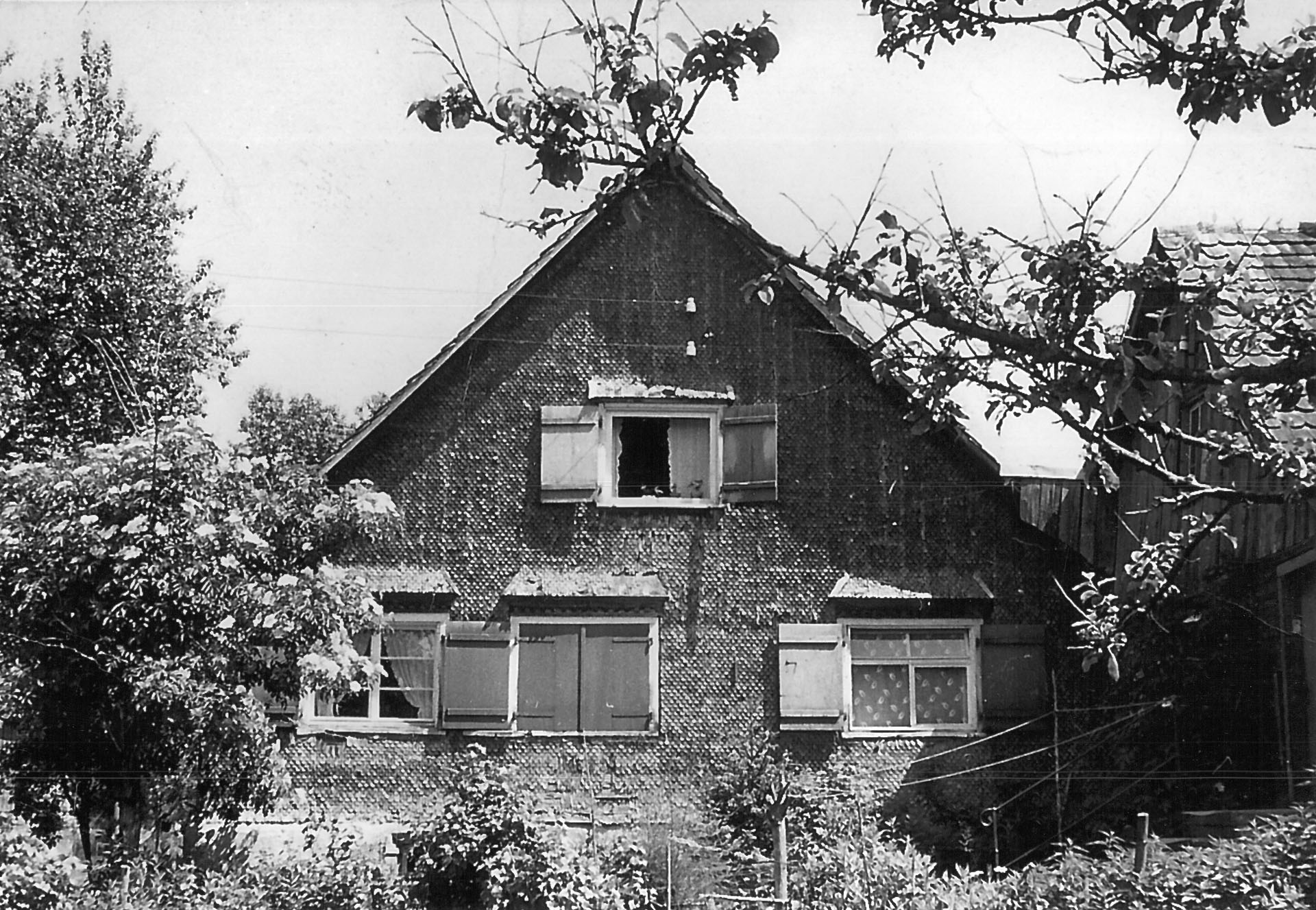 Frei House in Hohenems, Lustenauer Straße
Frei House in Hohenems, Lustenauer Straße
Archive of the Jewish Museum Hohenems
29 Michael Frei
”No one was allowed to know what my father was doing”. Hildegard Schinnerl talks about her father, the escape helper Michael Frei
Hohenems, 2012
In an interview, Hildegard Schinnerl shares her memories—for the film “Grenzfälle” {border cases} by Robert Menasse and Kurt Langbein. At the beginning of war, her family, that is, her Swiss father and Vorarlberg mother, resided in a farmhouse near the border in Hohenems. Her father, already familiar with the ubiquitous smuggling occurring at the border, now turned into an escape helper.
“Even I, at age six, was already … sent to Lustenau to see who would arrive now. … but one never knew when they would come, … the longer it went on—from 1938 until 42—they were often on their way for a month, two months since they were no longer able to use the train. They’d arrive at night, frequently already sick. Then one had to hide or care for them. They were often so nervous, so sick with fear. Naturally, they—they lived with our family, but hidden time and again. In my parents’ bedroom—and then we also had a chamber. And then this small annex, they had to crawl over there. ... One would always through the wall ... hear when someone would go up or down the ladder. And I slept exactly in the small bed near the wall.”
“The hard part was also that we always had the SA around and the neighbors and everything, the SA we’d also have in our house all the time. But nobody noticed anything since in our family no one would talk. That is, nobody was allowed to know what my father was doing, that my father is the escape helper, that he shelters them. And that they come here, to Hohenems. At the living-room table, my father would draw maps of the Alter Rhein, almost precisely to the meter. We have a field, a large field outside, with a large chapel … From here, one could always see the border guards, who was on duty. It was so heavily guarded, the border. My father had to keep spying and observing at night. And he had to know the entire procedure. Otherwise he wouldn’t have had a chance. But when my father would see that they had wine or something, not all of them were bad people after all, they simply had to do their shifts, but often they would also drink, and then he would wait and then he would think, yes, now it’s possible, when they have a bottle or two, then he would venture out.
Right behind our field there was the channel, and this channel is before the Rhine. … and here there was a footbridge, and then there was again the little border station … But from here, it was actually still far to Switzerland…; escape only started from here. And there was no path, there was only no-man’s-land. There was only undergrowth and such, it is unimaginable. …
So this is the border stone, they had to get till here. But behind, there is the same wilderness—all the way to Switzerland. So they all managed to get into Switzerland, to the camp. But my father would never hear again from anyone. After the war, he learned that many of them had been returned to the Gestapo in Höchst.”[1]
[1] Interview with Hildegard Schinnerl, in: „Grenzfälle – erzählt von Robert Menasse“ (Kurt Langbein/Robert Menasse, Austria/Italy 2012)
 Frei House in Hohenems, Lustenauer Straße
Frei House in Hohenems, Lustenauer Straße
Archive of the Jewish Museum Hohenems

